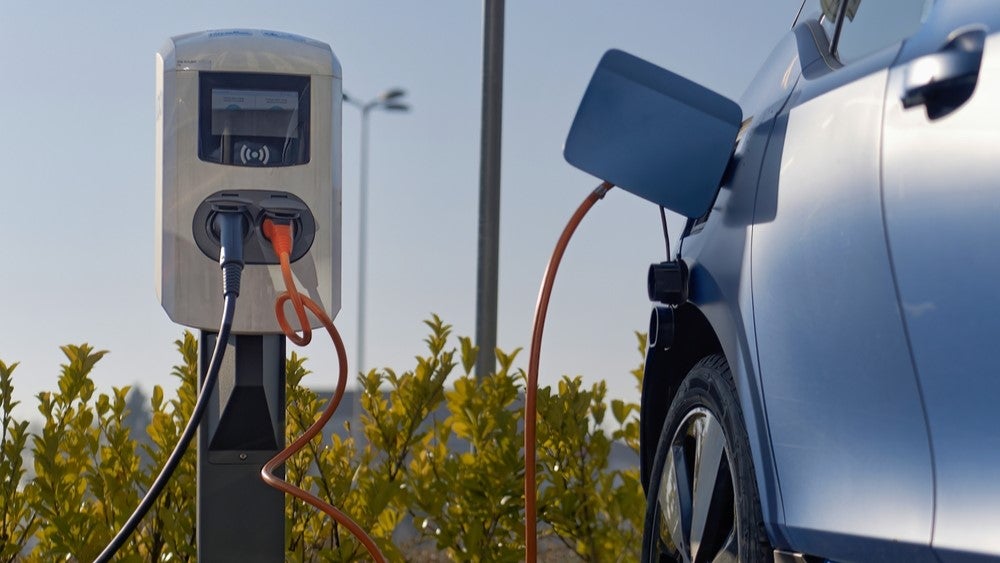
The automotive industry in Britain has called on the UK Government to act fast to convert Britain’s electric sceptics to the benefits of EVs, by using purchase incentives to stimulate greater demand.

Discover B2B Marketing That Performs
Combine business intelligence and editorial excellence to reach engaged professionals across 36 leading media platforms.
The Society of Motor Manufacturers and Traders (SMMT) says that such measures would boost the market by a further 15% on top of current outlooks – delivering a total of two million new EVs on the road by 2028, leading to increasing business for chargepoints, insurance, maintenance and other sectors, while drastically reducing road transport emissions.
New modelling by the SMMT suggests that under current market conditions, 1.782 million new EVs will be registered between 2025 and 2027. However, the trade body says growth could be accelerated by halving VAT on new EV purchases which would drive up demand by a further 15%, putting 267,000 additional new EVs – rather than fossil fuel vehicles – on the road. This would raise registrations to 2.05 million electric vehicles – all requiring charging, insurance, maintenance and energy services, and ultimately increasing supply into the used car market, the SMMT says.
While such a step would incur a temporary cost to the Treasury – an average of around GBP1,000 per car – the SMMT points out that the past five years have seen the UK Government accrue a GBP2.5 billion VAT receipt windfall as EV uptake has increased tenfold. Moerover, the SMMT says the measure, when combined with flexible regulation and mandated chargepoint rollout, would help drive a bigger and cleaner new car market, driving down CO2 emissions by six million tonnes a year – equivalent to cutting UK aviation emissions by almost a sixth and stimulating growth nationwide.
Manufacturer investment has enabled plentiful supply of EVs with more than 1.3 million now on the road in the UK. This has been driven by an ever wider choice, with more than 130 EV models now available and an average range of almost 300 miles on a single charge. Despite this growth, SMMT says natural demand must still be lifted if the Zero Emission Vehicle (ZEV) Mandate targets are to be achieved. These targets, drawn up under more optimistic market conditions and when energy and raw material costs were expected to fall, are putting huge pressure on the sector with automotive manufacturers forced to underwrite the transition to the tune of GBP4.5 billion worth of unsustainable discounting offered UK buyers last year alone.
A new survey by SMMT reveals that 23.1% of would-be new car buyers surveyed plan to get into an electric car between now and 2028. However, it says that is well below the UK Government’s aspiration, which calls for a 28% EV market share this year alone. Furthermore, the survey also suggests that the EV market is highly reliant on drivers who have already gone electric, comprising almost half (48.7%) of respondents – while fewer than one in eight (11.6%) new buyers polled are actively intending to switch to an EV. The positive news from this survey, however, is that the market could be transformed with Government support.
Purchase incentives would transform the market, along with greater chargepoint rollout and a reduction in the cost of charging through a VAT cut, would encourage around two in five consumers to drive electric. This, SMMT maintains, would deliver huge carbon savings and ensure a vibrant and bigger new car market that increases business for all sectors.
Mike Hawes, SMMT Chief Executive, said: “Manufacturer investment has meant ten times as many drivers are going electric compared with just five years ago. This is great progress but, with the right support for consumers, we can go beyond current expectations to put a total of more than two million new EVs on the road by 2028. Government investment to convert the ‘electric sceptics’ would energise business across the country far beyond just the automotive sector. Every stakeholder would benefit from the impact of consumer incentives which, when combined with binding targets for chargepoint rollout and more flexible regulation, would create a virtuous circle of rising demand that stimulates green economic growth.”






